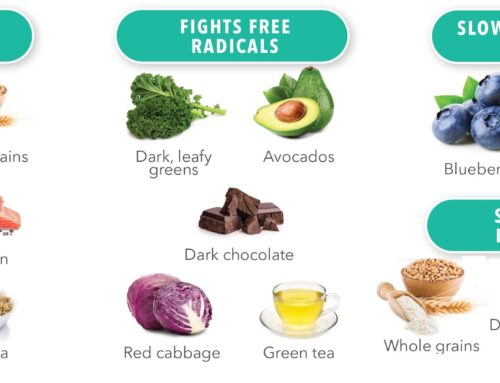Article courtesy of LevelsHealth
There’s no one-size-fits-all for a metabolically healthy diet. How we each respond to food goes beyond the macronutrient content of the food itself. You might respond well to bananas and have a big spike when you eat rice, while someone else may have the opposite response.
Individual differences, such as the composition of our gut microbiome, our micronutrient status, how well we sleep, exposure to stress, physical activity, and our genetics, can all contribute to those unique reactions.
In addition, how we consume a food can impact its metabolic response: For example, if we pair it with fat, protein, or fiber. The order in which we eat things matters, too—having fat or protein before carbs can help blunt a spike. Consuming vinegar or cinnamon before or with a meal can also lower the glucose response.
“Focusing on whole, unprocessed foods and avoiding added sugars are the cornerstones of optimal metabolic health.”
Many diet approaches can support metabolically healthy eating. We don’t endorse any particular diet because we recognize that each of us reacts differently to food, and that many factors influence what we eat.
However, we can identify several foods that are unlikely to spike your glucose. Here’s a starter list of things you can try, and if you have a continuous glucose monitor or use other methods to test your blood sugar, see how you respond. Even if you can’t measure your response, this is an excellent list to build your individual diet around.
Vegetables
In general, starchy vegetables are the most likely to raise glucose. Leafy green vegetables should serve as the core of any diet. See entire list.
Nuts and Seeds
These are a great way to add fat, protein, and micronutrients to any meal or to have as a healthy snack. See entire list.
Beans and legumes
Particularly when paired with fat, beans and legumes can be a great source of fiber and protein without a significant spike. That said, some people have a substantial response to beans. Tofu is generally a good choice for not spiking glucose. See entire list.
Fruits
Many berries tend to work well for people, while starchy fruits (such as bananas) and high-sugar fruits like dates may lead to a blood-sugar spike. Citrus is a great flavor addition to any dish. Generally, fruit paired with fat and protein (like nut butters or full-fat unsweetened yogurt) and additional fiber (chia seeds or flaxseeds) can help blunt a spike from fruit. Also, portion size matters—keep them small as you learn how your body reacts. See entire list.
Eggs and Dairy
If you choose to eat dairy, fermented is best; also, aim for whole-fat and organic. If you use dairy alternatives, avoid sweetened varieties and oat milk. See entire list.
- Eggs (go for organic, cage-free)
- Kefir
- Plain unsweetened Greek yogurt
- Cottage cheese
- Butter
- Ghee
- Sour cream
- Unsweetened nut, seed, and bean milks (excluding oat or rice milk)
- Unsweetened non-dairy yogurt (excluding oat)
Baked-Good Ingredients
If you want to bake, just swap in these alternative flours and sweeteners for refined wheat flours and traditional sugars.
- Almond flour
- Coconut flour
- Monk Fruit
- Stevia
- Allulose
Pasta
White-flour pasta is an ultra-processed food; try one of these alternatives instead.
- Zucchini noodles
- Konjac noodles
- Hearts of palm pasta
- Chickpea, black bean, or lentil pasta (these spike some people and not others)
Meat and Fish
If you eat animal products, look for organic, grass-fed, antibiotic- and hormone-free options, which have higher omega-3s, including (but not limited to):
- Beef
- Lamb
- Game meats
For seafood, try wild-caught, small fish, such as:
Oils, Fats, and Sauces
Avoid refined seed oils, which have damaging linoleic acids. Nut butters and spreads like tahini can be excellent sources of fat and protein to pair with other foods.
- Tahini
- Nut butters
- Aioli
- Guacamole
- Pesto
- Coconut oil
- Olive oil
- Avocado oil
- MCT oil
Flavorings and Treats
- Extra Dark Chocolate (88% or higher is a good choice)
- Cocoa powder
Remember, everyone’s ideal metabolic diet is different. There’s no guarantee that any of these items will produce a low glycemic response for you. However, focusing on whole, unprocessed foods and avoiding added sugars are the cornerstones of optimal metabolic health.



